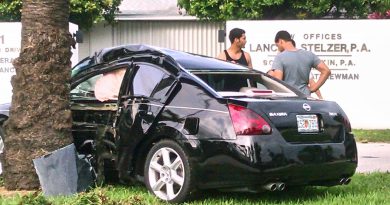What brain injuries related to car accidents really entail
Damages a Brain Injury Can Cause in a Car Accident
A car accident can lead to different types of injuries. One of such is brain injury. Brain injuries can cause varying levels of damages to different individuals. Unfortunately, they do not always manifest immediately after a car accident, which can be very dangerous over time. A brain injury could be either an open head injury or a closed head injury.
Open head Injury
An open head injury occurs when there is a skull fracture due to direct injury caused by items such as metal, glass, or other fragments found at an accident scene. Open head injuries are usually the most dramatic – they are critical, requiring emergency medical care.
Closed Head Injury
A closed head injury is often referred to as a “silent killer”. Although symptoms could be immediate, there could also be a delay. This delay could last for hours, days, or even more. Closed head injuries do not involve any direct injury to the skull – there may be little to no blood or scratches following the car accident. The types of injuries occur as a result of the impact of a blunt force such as a window, the car dashboard, or the steering wheel, on the head. There are different types of closed head injuries. They include:
Concussions
Concussions are one of the most common types of brain injuries due to car accidents. They occur as a result of a change in momentum or a sudden impact. This sudden force can cause the brain to shift towards the inner skull. It can also lead to damage of cranial nerves due to the stretching of blood vessels in the brain.
Contusions
Contusion is also known as a “bruise”. However, it is even more complicated when it involves the brain. It can cause blood clots, swelling, and anoxia. Contusions from car accidents are usually caused by sudden and severe impacts on the head. In some cases, they may require surgical removal.
Coup-contrecoup
This refers to two contusions – at the site of impact and at the complete opposite side of the head. Coup-contrecoup injuries usually occur when the impact on the head is not just violent enough to cause a contusion at the site of impact, but at the opposite side of the head.
Diffuse Axonal Injuries
This refers to tears in the brain’s nerves as a result of stretching beyond breaking point. The term “diffuse” is used to describe the injury because the impact on the brain is widespread as a result of forceful and violent disturbance of the head during the car accident. The tear of the nerves can cause chemicals in the cells of the brain to be released, leading to damage of the cells and even cell death. Diffuse axonal injuries are often very traumatic, causing impairments, brain damage, and even death.




